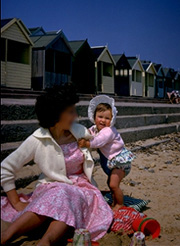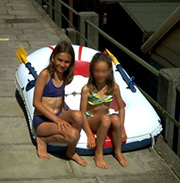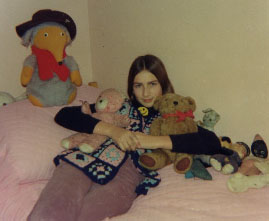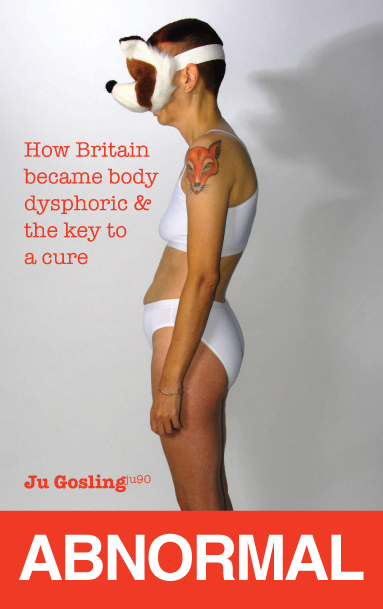

The half-term holiday had been a refreshing break to all
members of IV B, and they had much to talk about when they met again.
"I had a ripping time in the country," said Dorothy. "We
went to a meet and saw all the hounds, and afterwards we ran across some
fields and caught a glimpse of the fox. It got away, and I was rather glad."
"We went to the theatre and saw The Scarlet Pimpernel,"
said Winnie.
"And we went for a long run in the car," said Daphne. "We
went to see my uncle at Cambridge, and he took us through some of the Colleges.
Coming back we burst a tyre, and we had to stop ever so long by the roadside
before Dad could get the spare wheel fixed on."
Hetty and Tess had been hiking with their brothers, and Maud had spent
the weekend with her grandmother.
(Angela Brazil, An Exciting Term, Blackie & Son, 1936, p150)
While at primary school, my out-of-school life was integrated
with my home and school life, since I spent all of my time in my home town
and almost everyone of my age went to the same school. I also enjoyed any
opportunity to write creatively, producing poems and short stories which
owed much to the style of Enid Blyton, and writing a play which was produced
by the local Brownie Pack. However, once I reached the more academic High
School![]() this ceased, and in fact I did not begin writing outside of my academic
work again until I left University
this ceased, and in fact I did not begin writing outside of my academic
work again until I left University![]() .
Once at the High School, I also saw little of my classmates out of school,
due to a combination of my geographical isolation and my parents' low income
preventing me from travelling and participating in social events. And although
I became on good terms with the local girls with whom I travelled to school
after my first year
.
Once at the High School, I also saw little of my classmates out of school,
due to a combination of my geographical isolation and my parents' low income
preventing me from travelling and participating in social events. And although
I became on good terms with the local girls with whom I travelled to school
after my first year![]() ,
we never became close. Therefore, only very occasionally did I go cycling
or swimming with my travelling companions after school, or meet up with
a friend from dancing school or from one of the rural villages between
my home and the school. And while I was friendly with many of the girls
at the High School, they all lived too far away for me to socialise with
them outside of it, severely limiting our relationships (in any case, all
of my friends had other, closer friends). This was to become particularly
frustrating as I grew older, since the last train home from the market
town where the school was situated departed at 10pm, preventing me from
going to the cinema, discos or parties even when I had a job and could
afford these.
,
we never became close. Therefore, only very occasionally did I go cycling
or swimming with my travelling companions after school, or meet up with
a friend from dancing school or from one of the rural villages between
my home and the school. And while I was friendly with many of the girls
at the High School, they all lived too far away for me to socialise with
them outside of it, severely limiting our relationships (in any case, all
of my friends had other, closer friends). This was to become particularly
frustrating as I grew older, since the last train home from the market
town where the school was situated departed at 10pm, preventing me from
going to the cinema, discos or parties even when I had a job and could
afford these.
out1
 Instead,
during the summer I spent a great deal of time on the beach
Instead,
during the summer I spent a great deal of time on the beach![]() .
Before I went to school, my mother was not employed and I literally grew
up on the beach, since my mother loved to sunbathe or to collect shells
which she would later use in craft work, and she also met with many of
her friends there. (In the early years, she probably also welcomed the
escape from my grandmother
.
Before I went to school, my mother was not employed and I literally grew
up on the beach, since my mother loved to sunbathe or to collect shells
which she would later use in craft work, and she also met with many of
her friends there. (In the early years, she probably also welcomed the
escape from my grandmother![]() .)
Like my parents' friends, we had a beach hut which provided shelter when
it rained, and so for five months or more of the year we spent most of
every free day by the sea, whatever the weather. However, books were very
much part of the experience: my mother would read to me and my sister in
the afternoons; and later on bought Ladybird primers for me to read to
myself. When I went to school, I then took out my own books from the local
library, and spent a great deal of time wrapped up in cardigans reading
on the cliffs (the shore was often wind-swept, and I felt the cold badly).
I was not particularly friendly with the other children on the beach, many
of whom were summer visitors who did not mix with children outside their
parents' social set, with the rest being primary school friends who later
rejected me for going to the "snob school"
.)
Like my parents' friends, we had a beach hut which provided shelter when
it rained, and so for five months or more of the year we spent most of
every free day by the sea, whatever the weather. However, books were very
much part of the experience: my mother would read to me and my sister in
the afternoons; and later on bought Ladybird primers for me to read to
myself. When I went to school, I then took out my own books from the local
library, and spent a great deal of time wrapped up in cardigans reading
on the cliffs (the shore was often wind-swept, and I felt the cold badly).
I was not particularly friendly with the other children on the beach, many
of whom were summer visitors who did not mix with children outside their
parents' social set, with the rest being primary school friends who later
rejected me for going to the "snob school"![]() .
.
out2
 I
did, though, long for a boat - many local people sailed - eventually saving
up enough money to buy an inflatable dinghy during my last years at primary
school. This was my pride and joy for about two years, when I spent most
of the summers rowing up and down the coast, but it perished when vandals
broke into the beach hut one winter and set fire to it. I also enjoyed
surfing on a polystyrene body board and generally playing about in the
water (although I was never a particularly keen swimmer), shrimping and
scrambling on the cliffs.
I
did, though, long for a boat - many local people sailed - eventually saving
up enough money to buy an inflatable dinghy during my last years at primary
school. This was my pride and joy for about two years, when I spent most
of the summers rowing up and down the coast, but it perished when vandals
broke into the beach hut one winter and set fire to it. I also enjoyed
surfing on a polystyrene body board and generally playing about in the
water (although I was never a particularly keen swimmer), shrimping and
scrambling on the cliffs.
out3
For the rest of the year, social
activities were limited to the Girl Guides, music lessons and riding lessons.
The Girl Guides had, of course, been the most popular British girls' organisation
since they were founded at the beginning of the century and this is reflected
in many girls' school stories, including the Chalet School series; I therefore
had high expectations of them from my fictional reading. Having previously
been a "Brownie", I joined my local company during my last year
at primary school, becoming a member of the Swallow Patrol. We met once
a week in the local Red Cross hall, led by a local nurse and later by one
of the primary school teachers.
out4
I found Guides hardgoing at first, particularly when we
went away to camp for a week during the summer holiday before I went to
the High School. I was extremely homesick, having never been away from
my family before, and I was also teased mercilessly, since my mother had
insisted that I sleep on a camp bed rather than on the ground because of
my history of poor health. (The teasing may also have been related to the
fact that I was about to start at the "snob school"![]() .)
As I grew older, though, I became a competent Guide, eventually becoming
Patrol Leader of the Swallows. I enjoyed the outdoor and practical activities
on offer, and particularly looked forward to the subsequent camps, since
we had very few other holidays during my childhood. Then as now, Guides
offered girls the opportunity to participate in a wide range of activities
which are more generally limited to boys, and to explore team work and
leadership in a completely girl-centred environment with military overtones.
.)
As I grew older, though, I became a competent Guide, eventually becoming
Patrol Leader of the Swallows. I enjoyed the outdoor and practical activities
on offer, and particularly looked forward to the subsequent camps, since
we had very few other holidays during my childhood. Then as now, Guides
offered girls the opportunity to participate in a wide range of activities
which are more generally limited to boys, and to explore team work and
leadership in a completely girl-centred environment with military overtones.
out5
 Eventually
I became a "Queen's Guide", which required me to pass a wide
range of tests. That I got so far in the organisation is, I think, due
to a combination of factors. First, I enjoyed the personal challenges and
the project work involved. Then my mother had always insisted that we finish
anything which we started, and to become a Queen's Guide was as far as
one could go in the organisation. Most importantly, in my early teens the
Guides filled a gap in my social life and offered me opportunities which
I was unable to find elsewhere. As soon as I had been presented with my
award, though, at the age of fifteen, I left the organisation, despite
invitations to join the Ranger Guides (a sister organisation for older
girls), to become a youth leader and to assist with the Brownies. By this
time I had other options, and had no further interest in an organisation
which was monarchist and religious in its ethos - if not necessarily in
its practice - and which, despite its benefits, failed to live up to its
fictional promise.
Eventually
I became a "Queen's Guide", which required me to pass a wide
range of tests. That I got so far in the organisation is, I think, due
to a combination of factors. First, I enjoyed the personal challenges and
the project work involved. Then my mother had always insisted that we finish
anything which we started, and to become a Queen's Guide was as far as
one could go in the organisation. Most importantly, in my early teens the
Guides filled a gap in my social life and offered me opportunities which
I was unable to find elsewhere. As soon as I had been presented with my
award, though, at the age of fifteen, I left the organisation, despite
invitations to join the Ranger Guides (a sister organisation for older
girls), to become a youth leader and to assist with the Brownies. By this
time I had other options, and had no further interest in an organisation
which was monarchist and religious in its ethos - if not necessarily in
its practice - and which, despite its benefits, failed to live up to its
fictional promise.
out6
I also began taking violin
and piano lessons when I was at primary school, since a council-administered
test pronounced me to be extremely musical (I suspect that my hearing developed
to compensate for my poor eyesight). These lessons were taught to me by
a middle-aged couple who lived in a terraced cottage close to my home,
with the husband teaching me the piano and his wife the violin. I enjoyed
the broad music curriculum at my primary school, particularly the singing,
but I had no particular talent for either the violin or the piano and was
mortified when I had to play the violin in a pupils' concert at the local
Methodist Church hall. Eventually I was glad when the long journey to and
from my High School meant that it was impossible to fit the lessons in,
and was relieved when I was finally allowed to give up learning the violin
at school too![]() .
.
out7
My riding lessons were more sporadic, but since my father
had grown up on a farm![]() and had always ridden as a child, he wanted us to have the opportunity
to learn, and found the money when he could. At one point I had a few informal
lessons in a local field, but found it difficult to control the pony. I
was a great animal lover and we kept many pets at home, but the sheer size
of the animal frightened me. After it had bolted twice as well as bitten
me, I decided to stop. Later we briefly went hacking at a proper riding
school a few miles away, which I did enjoy. However, my father was made
redundant shortly afterwards and was then unemployed for nearly a year,
and we never returned.
and had always ridden as a child, he wanted us to have the opportunity
to learn, and found the money when he could. At one point I had a few informal
lessons in a local field, but found it difficult to control the pony. I
was a great animal lover and we kept many pets at home, but the sheer size
of the animal frightened me. After it had bolted twice as well as bitten
me, I decided to stop. Later we briefly went hacking at a proper riding
school a few miles away, which I did enjoy. However, my father was made
redundant shortly afterwards and was then unemployed for nearly a year,
and we never returned.
out8
(In fact, my parents always had to struggle to pay for
our out-of-school activities, since their income was very low. My mother
ran a playgroup, while my father sold insurance
door-to-door. Insurance agents had to buy their own "round" of
customers, and due to lack of capital, my father's round consisted of the
hard-to-reach rural areas and the council housing estates with the worst
reputation. This meant that he had to travel long distances to collect
premiums, frequently needing to return to clients on Friday evenings after
they had been paid. At the beginning of my High School years he was offered
a better job with another company, but later lost it when his managing
director committed suicide and the company had to cut back on staff in
order to pay death duties. Ironically, my father went on to find a job
as a Deputy Registrar of Births, Deaths & Marriages which he still
held when he died a few years later, although this also paid badly.)
out9
Later, when I grew older, I joined the local amateur dramatic
society, which had a good reputation and took itself very seriously. Initially
I performed as a dancer when needed, but increasingly I became interested
in the production side and worked as an assistant stage manager. In this
I was following an interest which I had first gained at primary school.
A prolonged period of illness had left me out of the school play (as I
had a good memory, I usually had a leading role), and when I returned to
school I was allotted to help the stage management team. My mother did
not come to the play since I was not performing - we both viewed stage
management as very menial in the 1960s - and we were astonished later when
a friend of hers sung my praises for being so competent.
out10
During the summer the town played host to a weekly repertory
company, based at the Women's Institute hall a few hundred yards from my
home. I first attended their performances as a small child, accompanying
my "Auntie Nell"![]() who received free tickets because of providing lodgings to members of the
company. She died when I was thirteen, but later I joined the voluntary
programme- and ice cream-sellers and continued to see the performances
for free. This also stimulated my interest in production, and after I decided
against becoming a dancing teacher, I initially thought of training as
a stage manager. However, I eventually decided to aim for film and television
production - I would have liked to stage manage outdoor events and music
events, but this was unthought-of for girls in the 1970s - and to continue
my studies at university level.
who received free tickets because of providing lodgings to members of the
company. She died when I was thirteen, but later I joined the voluntary
programme- and ice cream-sellers and continued to see the performances
for free. This also stimulated my interest in production, and after I decided
against becoming a dancing teacher, I initially thought of training as
a stage manager. However, I eventually decided to aim for film and television
production - I would have liked to stage manage outdoor events and music
events, but this was unthought-of for girls in the 1970s - and to continue
my studies at university level.
out11
In the meantime, I had a succession
of more menial jobs. I had begun work as a babysitter at the age of about
thirteen, boosted by my mother's reputation as a professional child carer.
I never quite understood how being her daughter made me any more reliable
than anyone else, but I continued to be the most popular babysitter in
the area until I left home, although the pay varied enormously according
to the client. During the summer after my GCE O Levels I also worked in
the seaside town to the north of my own, an overgrown fishing village which
now attracted a large number of day trippers from the East End of London.
I was employed in a "greasy spoon" cafe on the sea front, but
given my previous incompetence in Cookery lessons![]() ,
this was not a conspicuous success. I only felt confident when I was selling
ice cream on the beach or serving chips, and was particularly nervous of
the coffee machine.
,
this was not a conspicuous success. I only felt confident when I was selling
ice cream on the beach or serving chips, and was particularly nervous of
the coffee machine.
out12
Luckily, the following year I obtained a weekend and holiday
job working in a gift shop in the same town. As well as cheap jewellery,
vases, novelties etc the shop sold an enormous range of yellow pottery
adorned with plastic pixies, inscribed with "A present from . . .
". To my astonishment this stock sold at a phenomenal rate, with whole
coach parties crowding into the shop to admire and then buy. The shop was
owned by a very pleasant middle-aged couple, members of the same amateur
dramatic society, who were extremely sympathetic when my father died within
a few weeks of my starting work there![]() .
However, I was rather taken aback when I realised that the same tea bag
was used to make all three of us the mid-morning cup of tea, after which
it was carefully dried before being re-used in the afternoon. I was sad
to leave at the end of the season, though, to work for a well-known chain
store in the market town where I went to school. This paid well, and often
provided me with employment after school as well as on Saturdays and in
the holidays, but the blue nylon uniform was an unpleasant reminder of
school and the job was both boring and tiring.
.
However, I was rather taken aback when I realised that the same tea bag
was used to make all three of us the mid-morning cup of tea, after which
it was carefully dried before being re-used in the afternoon. I was sad
to leave at the end of the season, though, to work for a well-known chain
store in the market town where I went to school. This paid well, and often
provided me with employment after school as well as on Saturdays and in
the holidays, but the blue nylon uniform was an unpleasant reminder of
school and the job was both boring and tiring.
out13
 Outside
of these activities, I spent much of my time reading or walking our dog
along the sea wall which bordered the marshes to the south of my home town.
Strong currents swept along the coast, attracting fishermen to the "points"
where the seawall jutted out into the water, otherwise there was little
company beyond the cattle grazing on the marshes behind. At one time parts
of the old London Bridge was stored immediately behind the wall, broken
into numbered chunks of stone, and this did attract visitors for a while.
Aside from this it was a more popular spot at night, with the condoms which
littered the occasional "pill boxes" left over from the Second
World War reflecting the only other activity available in the town. But
I did not care for boys.
Outside
of these activities, I spent much of my time reading or walking our dog
along the sea wall which bordered the marshes to the south of my home town.
Strong currents swept along the coast, attracting fishermen to the "points"
where the seawall jutted out into the water, otherwise there was little
company beyond the cattle grazing on the marshes behind. At one time parts
of the old London Bridge was stored immediately behind the wall, broken
into numbered chunks of stone, and this did attract visitors for a while.
Aside from this it was a more popular spot at night, with the condoms which
littered the occasional "pill boxes" left over from the Second
World War reflecting the only other activity available in the town. But
I did not care for boys.
out14
| Dr Ju Gosling aka ju90's ABNORMAL: How Britain became body dysphoric and the key to a cure is available now for just £3.09 for the Kindle or in a limited-edition hardback with full-colour art plates for £20 inc UK postage and packing. |  |